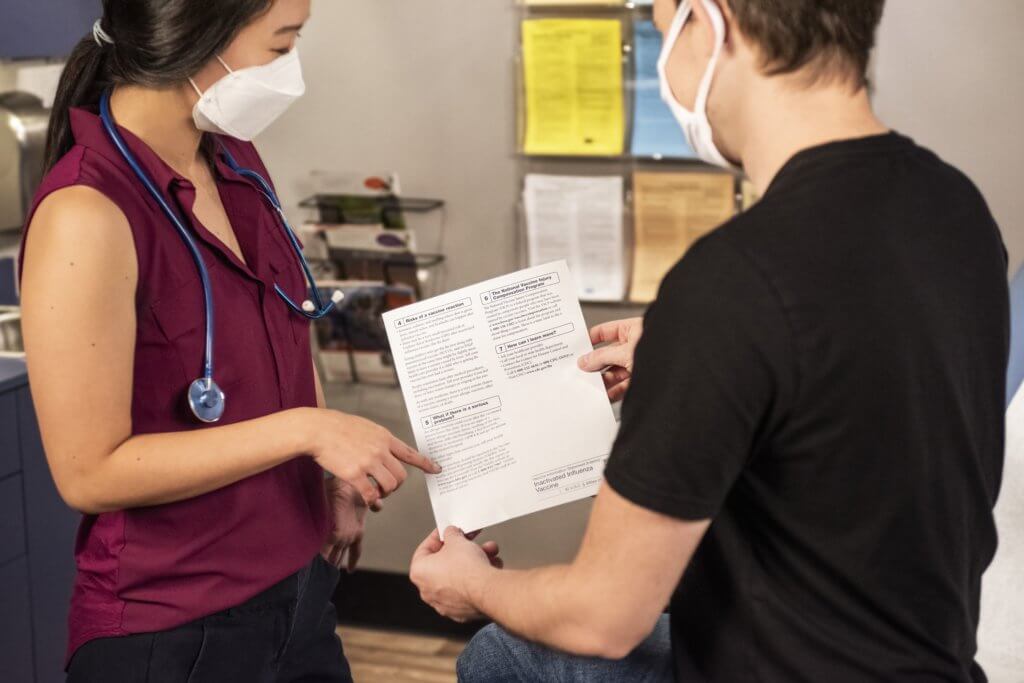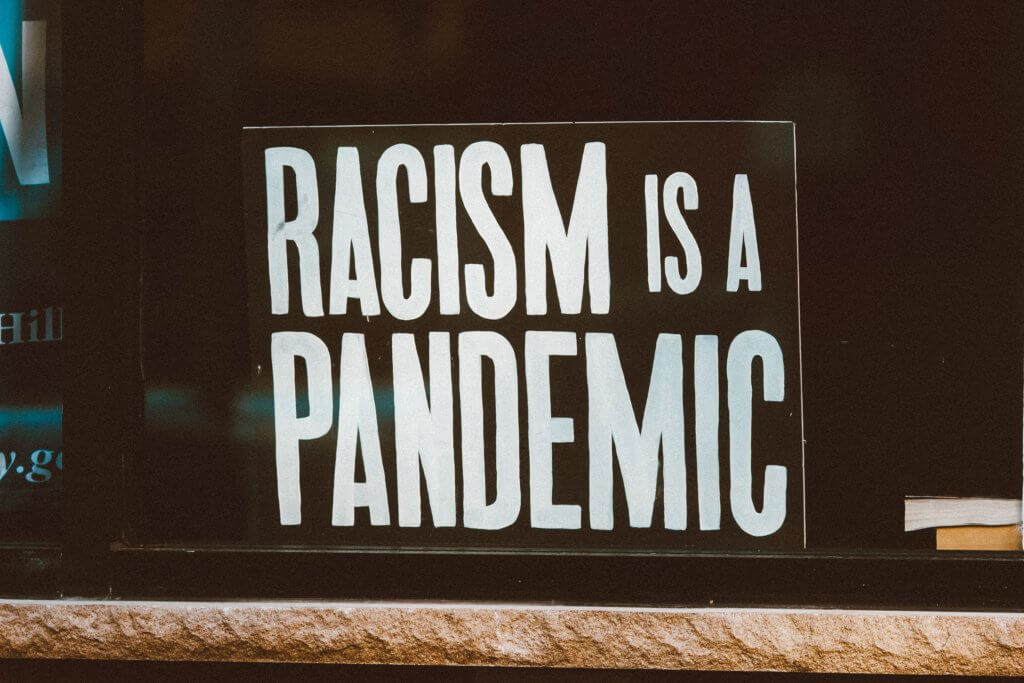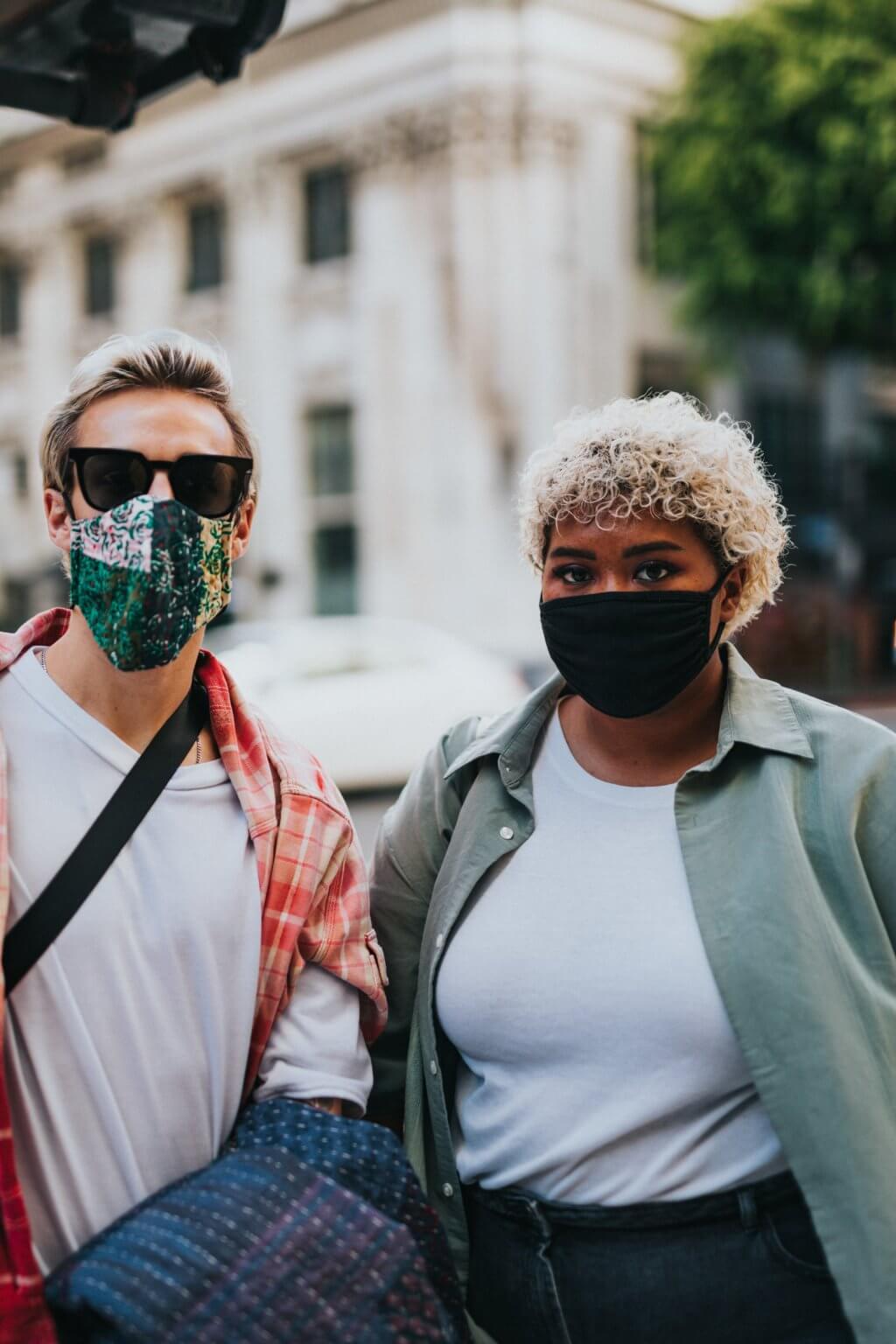Talking to families about COVID-19 and COVID-19 vaccines
You can also download this information as a PDF
What do the HFA Best Practice Standards (BPS) expect sites to do?
Link families with health resources
Critical Element 7 is about linking families with health resources. This includes providing all participating family members (children and adults) with health care information, resources and linkages (BPS 7-3.B) and promoting vaccination, including tracking and reporting on child vaccinations (BPS 7-2).
Share factual information from credible sources
While the BPS does not specifically include how to support the health needs of families during a global pandemic, HFA sites will share factual information from credible sources with parents about COVID-19 and the COVID 19 vaccines in the same way they have always been expected to share information on topics of parenting, development, health and safety (BPS 6-4).
There are many potential reasons for vaccine hesitancy. Trust is a big part of it. Our responsibility in this moment is not to step back from hesitancy but to step alongside. To lean on what is credible, factual, and evidence-based, with the goal of supporting family health and well-being.
In HFA, we are expected to be non-judgmental. Isn’t it judgmental to encourage family members to be vaccinated?
- Being non-judgmental is at the core of our interactions with families and is central to the way that HFA home visitors build trust and create safe and healthy relationships with families. We do not stand in judgment of parents for the choices they make or the circumstances and context that influence those decisions. Instead, we employ compassion and curiosity. We learn more about what parents experience, what they think and feel, to be able to support them in making healthy changes to benefit themselves and their families
- Sharing information about vaccines in a factual way is in alignment with our value of being non-judgmental and with how we approach other topics with parents, such as smoking, spanking, and safe sleep. The science is clear that some actions or decisions by parents may put themselves and others health and safety at risk, and in those situations, we share factual information and use our trusting relationship with parents as a way to convey that information non-judgmentally.
Some of the families I visit have all sorts of information that they are basing their decisions around vaccination on. I am not sure how to respond. What can I do?
Tap into some resources related to COVID vaccine misinformation
- CDC: Addressing COVID Vaccine Misinformation
- CDC: Finding Credible Vaccine Information
- CDC: Key Facts about COVID-19 Vaccines
- UNICEF: Vaccine Misinformation Management Field Guide
Support families in evaluating the accuracy of health information

Use the HFA Advantage to communicate with families in a way that is culturally responsive and trauma-informed.
Use Problem Talk to learn more about the family’s feelings about vaccination. Open-ended questions allow parents the opportunity to feel heard and can support finding solutions.
- What has your medical provider told you about vaccination?
- How would it impact your baby if you become seriously ill?
- What are the sources of your information about COVID-19 and the vaccines?
- What are the questions you have about the vaccines?
Use Normalizing when you hear a common, but an inaccurate statement. An example:
- We hear a common but inaccurate statement: “Those vaccines are more harmful than COVID is!”
- Normalize this perspective, acknowledge that it is a commonly held belief: “I hear that all the time too, my sister was really worried about side effects from her vaccine, too.”
- Provide information that will build the parent’s understanding: “What we know about the vaccines is that after hundreds of millions of doses administered in the US, there have been very few cases of severe outcomes to the vaccine. At the same time, COIVD has killed more than 600,000 people in the US. I have some information from our local health department about vaccine safety I can share.”
- Check in with the parent and listen to their response: “What do you think?”
(Wondering about how to respond to COVID-19 and vaccine myths? Check out this resource or this one)
- Ask permission before sharing additional resources: “Would it be okay if I shared some information about the vaccines with you? I am committed to keeping your family and our community safe and healthy.”
Our program serves some families who are vaccine skeptical because of historical incidents where people of color were harmed while being told they were receiving medical treatment, and/or families who are skeptical of vaccines because they have directly encountered racism or discrimination in accessing healthcare services for themselves.
What is an appropriate way to communicate with families when their concerns are understandable in the face of centuries of systemic racism?
Acknowledge and validate their concerns.
- Vaccine hesitancy may be rooted in the very real historical and current contexts of systemic racism, marginalization and neglect. Skepticism about the validity and trustworthiness of science, research practices and government health efforts is understandable.
- Racism and the effects of racism have resulted in Black and brown communities suffering disproportionately from the COVID-19 pandemic. A study by the National Institutes of health found that Black Americans have COVID-19 death rates of more than 2.7 times that of white Americans. People of color are severely impacted by the pandemic because of social determinants of health and disparities that have not been addressed.
Seek out and lift up voices within the community that share accurate information about COVID-19 vaccines.
- The Conversation / La Conversacion features health care workers of color discussing COVID and vaccination. They have a collection of resources including videos that address common concerns and toolkits.
- Latinos and Health Equity has a Bilingual Storytelling Campaign related to COVID vaccination.
- The CDC has developed a Toolkit for Tribal Communities
- Community faith leaders and other trusted messengers in the community can boost credibility of vaccine messages. Community organizations that have already built trust and relationships can be successful in getting accurate information to vaccine hesitant groups.
If families are open or become open to vaccination, try to help connect them with a vaccination site where they are less likely to be discriminated against, or where they are more likely to see and be cared for by healthcare workers from a similar racial or cultural background.

I don’t like talking about vaccines with the families I work with. I like to keep politics out of my home visits.
It is understandable that conversations about politics, candidates and political parties are not a good fit with home visiting. Home visitors should not use their relationships and interactions with families to further a political movement or support a particular candidate for office.
- COVID-19 vaccination is not a political issue. It is a public health issue, and as such, is in alignment with the other health and wellness conversations that we routinely have with families.
- If families misunderstand your conversations around vaccines to be political, communicate to them that you are sharing evidence-based facts with them on this topic, in the same way that you share information with them related to child development, community resources and relationships between parents and babies.
- If you notice strong feelings as a result of these conversations, you may choose to use Feel: Name and Tame to demonstrate empathy and to use active listening skills so that they will feel heard.

Remember to get support for yourself too. The pandemic has been long and is not over yet.
- Reach out to your supervisor to discuss big feelings and/or dysregulation that arise.
- Access your agency’s HR department or Employee Assistance Program for additional support.
Dive deeper into these topics:
Continued Use of Virtual Home Visits for HFA Sites
From a fidelity perspective, HFA currently regards virtual home visits and in-home visits equally, when conducted in accordance with existing home visit definition criteria and guidance.
What makes a virtual home visit a visit?
Phone and video visits can count as a virtual home visit, while texting does not (get more details on what counts as a virtual visit. What are the key components of a home visit?
CO, TR, and TO for 3+ months
We ask sites to do the best you can, exercising caution and utilizing these recommendations with families who have been on CO, TO or TR for extended periods to help ensure the safety and welfare of the children and parents involved, and to reduce agency risk and liability
Want to contact us?
Interested in learning more about our home visiting programs or helping transform childhoods and communities? Get in touch—we’ll respond as quickly as we can.

